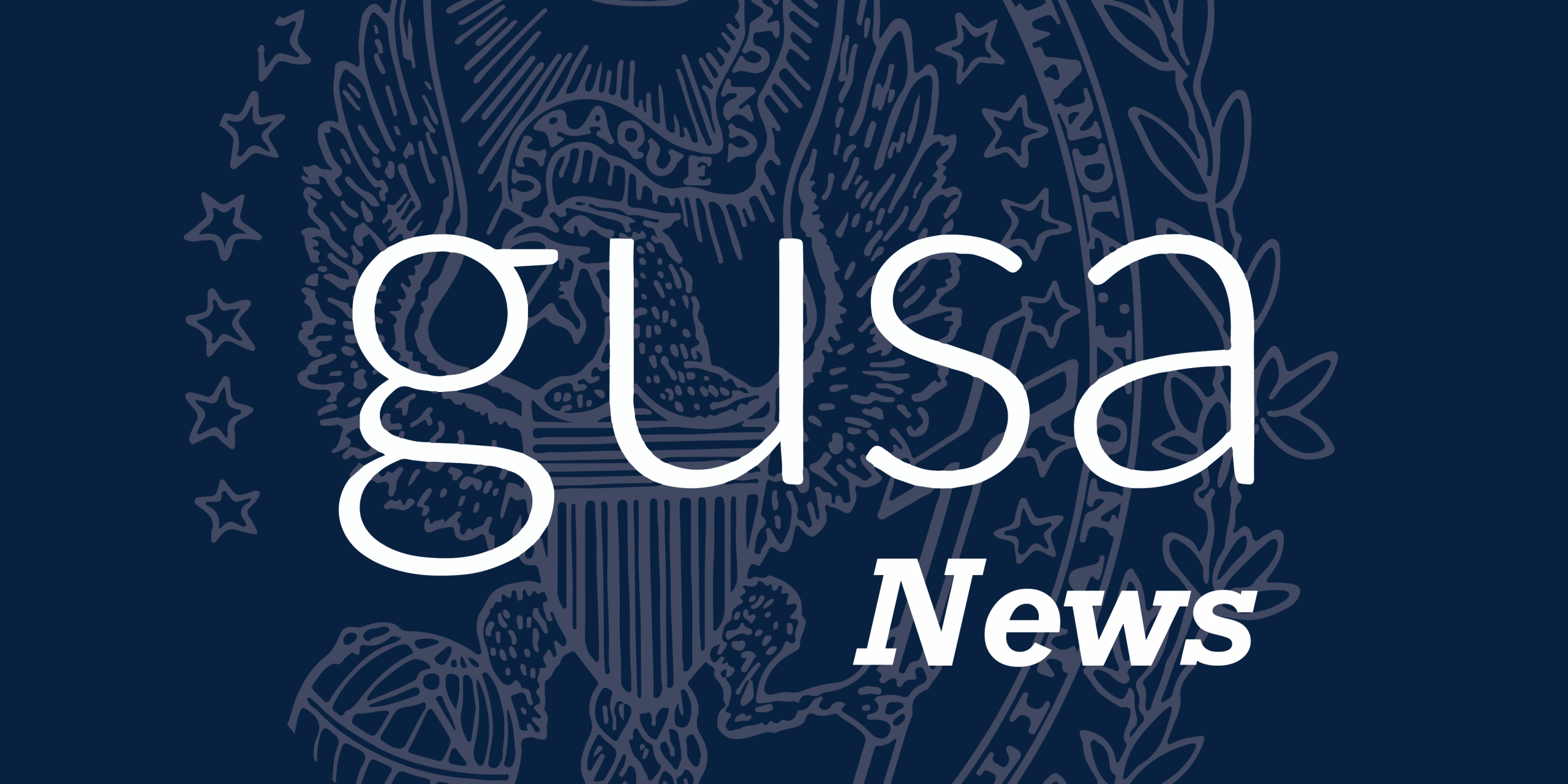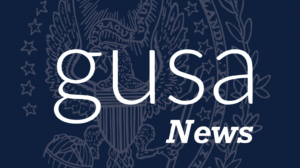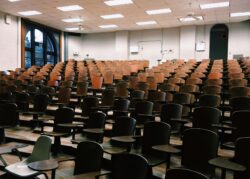The GUSA Senate tabled a resolution calling for a referendum to be put to the student body concerning a reconciliation contribution to be distributed to the descendents of the 272 enslaved people the university sold in 1838 during their Jan. 27 meeting.
Introduced by former Senator Sam Appel (COL ’20) and members of the GU272 advocacy team, the resolution had been in the works for two weeks, first being tabled and then eventually passed by the Ways and Means committee at their Jan. 23 meeting.
The resolution calls for the entire student body to vote on the issue of the reconciliation contribution in the form of a referendum, which would be put to students alongside the spring Senate elections in April.
If students vote in favor of the referendum, a new fee would be instituted alongside the current student activity fee that would collect funds to be redistributed to descendents of the 272, particularly those in underprivileged communities. The fee would begin at $27.20 and rise each year with inflation. The proceeds would be controlled by a board comprised of five students and five descendants that would be chartered upon the passage of the referendum.
Both the resolution calling for the referendum and the charter for the GU272 Reconciliation Board of Trustees were drafted by Appel with the input of the GU272 advocacy team, including students Hannah Michael (SFS ’21) and Mélisande Short-Colomb (COL ’21), who is also a descendent.
Appel and Michael introduced the resolution and provided a packet to Senators with testimonies and resources regarding the referendum. Members of the advocacy team and descendants helped present the resolution by sharing the experiences of descendents and highlighting how important the question was. Referring to the historic nature of the referendum, Short-Colomb said “as Georgetown students voting yes on this referendum, we put ourselves in the position of doing what has never been done in this country.”
The contribution amount was set to $27.20 as a symbolic reminder of the amount of people affected by Georgetown’s involvement in slavery. Appel said he believed the fee would be covered by the Office of Student Financial Services for any students on full financial aid, or any aid package that would cover the student activity fee. The fee would raise about $400,000 a year.
Senator Dylan Hughes (COL ’19) introduced an amendment to the charter to stagger terms and provide for vacancies on the board, which was passed unanimously.
A second amendment, also introduced by Hughes, called for the students to be appointed by GUSA, rather than the descendents as was originally suggested. Hughes felt this would allow for students to have more of a voice in the committee, though the 272 advocacy group was concerned this could allow for the board to be co-opted and silence descendents. The amendment passed 14-11, despite being considered unfriendly.
A third amendment was introduced late in the meeting by Senator Karan Chauhan (SFS ’22) to require the guidelines for allocation of funds made by the board each year to be approved by the GUSA Senate. The amendment was also tabled.
Concerns about the resolution centered around whether the referendum was ready to be put to students and whether the provisions would be accepted by the Board of Directors. Senator Evan Farrara (COL ’19) read a prepared speech expressing that the referendum did not address the concerns of the 272 working group, and would lead to excess funds while placing a higher financial burden on students.
A second, ideological argument Farrara expressed was that it was not the responsibility of the students of Georgetown to pay for mistakes that Georgetown, the institution, had made in the past, as they had no inherent connection with that institution. Other senators expressed similar concerns, suggesting the fee should be voluntary.
Michael expressed confidence that the one year the board would be chartered without having control of funds would allow them to address any logistical issues and figure out the specifics of distribution. She also argued that as beneficiaries of the university, and thus of slavery, it was the responsibility of students of Georgetown to make amends.
The Senate also discussed how the referendum would be perceived by Georgetown students and how it would affect conversations on campus, especially as the contribution was not voluntary and was being added on to a tuition increase. Other senators felt that the $27 the fee called for was relatively low, considering most students expenses. “It’s the smallest price you can pay for going to this school”, Senator Samantha Moreland (COL ’21) said.
Short-Colomb also dismissed these objections, arguing that those that were sold into slavery did not volunteer. “Georgetown University is a microcosm of a system of slavery and disenfranchisement,” she said, refocusing the debate on the larger picture.
Appel asserted that the referendum would be supported by the Board of Trustees based on conversations with a student representative on the board. Senator Harry Clow (MSB ’19) said that the same student representative had reported it would not even pass his subcommittee.
Appel introduced the motion to table the bill two hours into the meeting in order to continue to flesh out the resolution. The motion passed 15-10.
Michael said she was surprised about the outcome of the meeting. “I expected senators to have reviewed the documents the team prepared prior to coming to the meeting so we could have conversations that are constructive and come from a place of having an educated understanding about Georgetown’s legacy,” Michael said. “I believe that as students with immense resources and the ability to access them, specifically regarding the university’s legacy with slavery, GUSA senators that were not prepared at the meeting should strive to be prepared for the next one.”
Appel declined to comment on the meeting’s outcome.
Though she is ready to return next week, Michael felt surprised that it has been so difficult to get the referendum through the Senate, since “the point of a referendum is a campus-wide dialogue.” She feels very optimistic if she is able to put the referendum to the student body, and hopes that students will “educate themselves on the legacy and vote accordingly.”
Karla Leyja (COL ’22), a member of the GU272 Advocacy team, is already looking forward, saying the group has planned a series of events and advocacy campaigns, including town halls and speakers, to educate students on the importance of the referendum in the coming weeks before the vote.
Other business at the meeting included the presentation of dates for the student activities budget process by the Finance and Appropriations Committee. The application for funding is due on Feb. 10, and the budget summit will be Feb. 24. A draft budget will be produced shortly after the summit, and an appeals process will follow.
The Senate will meet next on Feb. 3 at 5pm in Healy 106, when they will reconsider the resolution.







